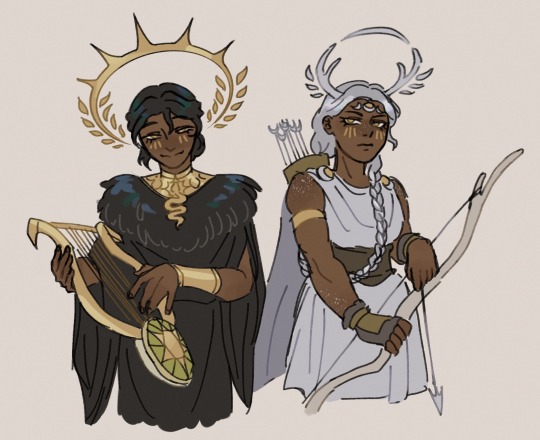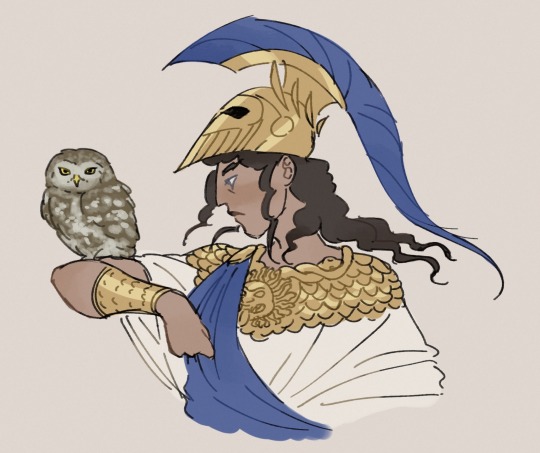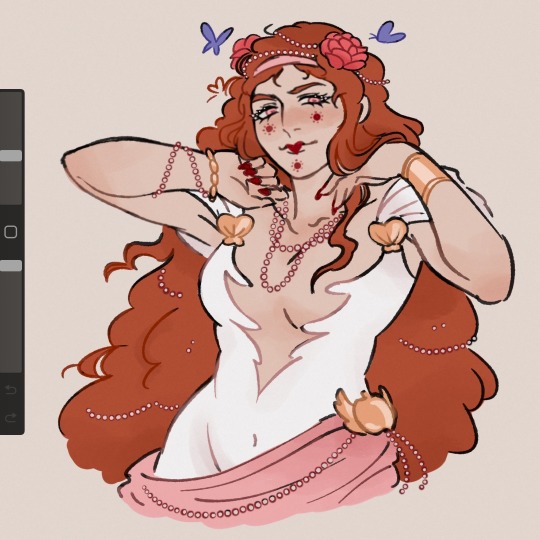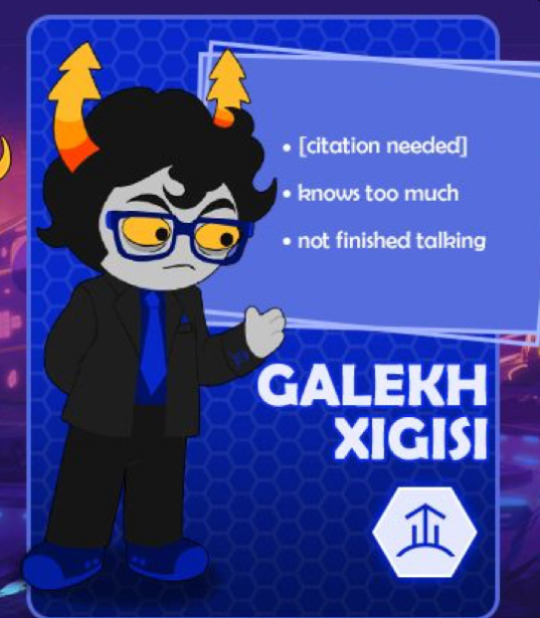they/he ✰ i use this as a little terrarium time capsule and it is so fun ✰ minor ✰ main fandoms: re animator, hannibal, selective hiveswap, cowboys ✰ i read a lot of fanfiction
Don't wanna be here? Send us removal request.
Text
STOP! before you decide you are irretrievably doomed, try one of the following options:
transition
bdsm
iron supplements
139K notes
·
View notes
Text
How to Pray, Praise, and Worship the Theoi
As someone who struggled to find resources that weren’t entirely one sided and hard to understand, I believe this post is in order! It explains how to petition to, (in other words, pray to) the Theoi concerning both everyday matters and big events in your life, as well as how to praise them and some general worship tips. I hope this helps some of you get started!
P.S. This is from a reconstructionist point of view, so if you’re not very traditional, then this post may not hold everything you’re looking for!
Prayer
Unlike what I first thought whenever I began doing research into Hellenismos, praying is not simply talking to a Theos, or even praising them. There is definitely a place for that in Hellenismos, but prayer typically means to ask for help in a matter that the Theos has a connection to. So when I talk about prayer, this is what I refer to. For example, asking Aphrodite for help in your love life is praying to Her.
Prayers are usually said while an offering is being given, whether that be after a hymn, libation, etc. Or it can happen in a moment where you can call upon the Theos of your choice and say something such as “if I have ever brought offerings to you, hear my prayer”. Prayers are very loose and there aren’t necessarily rules for petitioning the gods, just general standards. For example, don’t outright demand something from the Theoi without an offering or something similar. Be respectful, and know that you are asking for something, not taking money out of the bank. If the gods will it, it shall happen
Whenever I want to pray for something, I sing a hymn. Sometimes these are ones I write myself,or they come from the Homeric or Orphic hymns. I’ll be talking more about praising the Theoi in a little bit, so I won’t go into details, but incorporating your prayer into a hymn is very easy to do, and hymns often make a good lead-up offering. Singing a hymn, no matter how awful you think your singing voice is, is a performance and a gift to the Theoi. Sing, be proud, and lift your words to the heavens. They will appreciate all you give as long as it comes from your heart.
If you cannot or will not sing for any reason, giving an offering may be your best choice. Poetry, artwork, food, libations, incense/candles (mainly for Ouranic Theoi) and anything else you wish to give, such as time, are perfectly acceptable offerings. If you’re curious as to how one goes about conducting a traditional Ouranic offering, please visit this blog post. I am still writing one to match the khthonic side of things. My apologies!
In times of need or when you have very little time but desperately wish for the aid of the Theoi, you can petition to the gods without an offering. I have done this either with a mention of a previous offering, or an oath to give them a specific offering if they helped me. Here’s an example for both instances:
“Wise Athene, if I have ever pleased you with my offerings, answer my prayer, great goddess!”
“I swear upon the life which I love to make you an offering, Athene, if you aid me and answer my prayer!”
You can then say your prayer after making this plea or beforehand by using something similar. I think the more heartfelt and honest the prayer, the better. I have a few daily prayers I use and I try to really feel them, since I’ll be using them very often. If a certain prayer clicks with you, I say use it.
Praise
Praising the Theoi is a major part of Hellenismos, and as such, there are tons of ways you can shower the gods with adoration and love. As aforementioned, hymns and offerings are both excellent ways to do so.
Hymns, in the Hellenic sense, are beautiful poem-like songs we can sing (or say) to build kharis with the Theoi. Kharis is the grace, the love, and the beauty shared between a mortal and a god. It is the relationship.
The Homeric and Orphic hymns are obviously very well-known, but they are by no means the only or the best hymns out there. Ones made by yourself or other Hellenists are also wonderful. @hymnstothetheoi has a collection of hymns on their tumblr blog, which I recommend for anyone interested in learning more. @baringtheaegis om tumblr has a wonderful post on how one could go about creating a hymn based off of the Orphic hymn to Pan. This is similar to how I personally write my hymns.
Feel free to only use the Homeric and Orphic pieces, but you don’t need to by any means. I love the old style of them and the connection I feel to the Ancients, but I make my own for personal and public use as well. During rituals, using the old hymns seems special, so I do that. Here is a link to a pdf download of the Homeric hymns (as soon as you click on it it will begin downloading, just so you’re aware). I haven’t found a good resource for the Orphic hymns as of yet, but Theoi.com definitely has a nice collection in their library.
Other ways to praise the Theoi include celebrating some of their festivals, dedicating time to them (doing something they hold influence over, ex: archery for Artemis and/or Apollo), or even keeping an e-shrine or playlist you made for them. People with disabilities, illnesses etc. often do things such as simply spend time thinking about them or creating aesthetic posts. These are wonderful alternatives to energy-draining activities such as rituals.
Worship
Prayer and praise both tie into worship. The only reason I didn’t include praise within the worship heading is because I wanted to touch more on the ritual aspect of Hellenismos. I barely knew anything about rituals as a beginner simply because no one had any resources. After finding Elani’s blog, that changed of course, and I began to understand what rituals were and how to do them. A big thank you to her for all of the information and resources, I have no idea how I would have learned everything without her.
In ancient Hellas, there were rituals, and they were usually public. They were very important to the city that held these rituals, so I see them as vital in my personal practice. Rituals are not for everyone, of course, but I love them. There were very repetitious steps involved in rituals, so once you grasp the concept, it comes naturally and is easy to follow.
A procession would take place first, sometimes from outside the city walls, or from an important place. To mimic this procession, many modern Hellenists take a walk outside or around their homes to put themselves in the ritual mindset. It’s a small thing that helps in the long run.
After the procession, the people cleanse themselves and the space, and of course the offering. Temples had an altar set up outside where people would gather to watch and make prayers as the offering (usually an animal sacrifice) was made.
Barley was scattered to cleanse the altar space, people washed themselves with khernips, and this was called Katharmos. In other words, it was a time for cleansing away miasma. They would also circle the altar with khernips to cleanse it as well.
After this had been done, prayers, hymns, and other related things were sung and said. They would make their sacrifice, and then hold a feast using the meat of the animal they had sacrificed (unless this was a cthonic ritual, in which case nothing sacriificed would be ingested). In modern times, people may give up something such as a bottle of wine or a meal, and then feast with what they give up.
502 notes
·
View notes
Note
When you pray to a god or goddess do you just think it or say it out loud or what? I guess I'm asking how you pray, in general?
I am going to try to answer your question, sweet Anon, but I need to talk about the difference between prayers and hymns first. Probably the best definition of ‘prayer’ I have ever happened upon was by William D. Fuley, who says: “prayers (and hymns) are attempts by men and women to communicate with gods by means of the voice”. It is simple, elegant, and accurate. Especially in the ancient Hellenic religion, it was important to raise one’s voice when hymns were sung, and especially so when prayers were made.
I am going to generalize here and say that a hymn was sung to the Theoi, with the aim to please the God in question. They have a beginning, middle, and end. The beginning contains two things: a note that the hymn is about to begin, and an announcement of whom the speaker/singer is addressing. In the Orphic hymn to Pan, this is beautifully done:
“I Call strong Pan, the substance of the whole, etherial, marine, earthly, general soul, Immortal fire; for all the world is thine, and all are parts of thee, O pow’r divine. Come, blessed Pan, whom rural haunts delight, come, leaping, agile, wand’ring, starry light;”
The middle part tends to focus on why the God or Goddess in question is not only the best in solving the problem that will be posed to Them later on in prayer, but why they are the best, period. The middle section contains all the wonderful things the deity in question has done, His or Her greatest accomplishments, and above all, it contains a description of the deity. For Pan:
“The Hours and Seasons [Horai], wait thy high command, and round thy throne in graceful order stand. Goat-footed, horned, Bacchanalian Pan, fanatic pow’r, from whom the world began, Whose various parts by thee inspir’d, combine in endless dance and melody divine. In thee a refuge from our fears we find, those fears peculiar to the human kind. Thee shepherds, streams of water, goats rejoice, thou lov’st the chace, and Echo’s secret voice: The sportive nymphs, thy ev’ry step attend, and all thy works fulfill their destin’d end.
O all-producing pow’r, much-fam’d, divine, the world’s great ruler, rich increase is thine. All-fertile Pæan, heav’nly splendor pure, in fruits rejoicing, and in caves obscure. True serpent-horned Jove [Zeus], whose dreadful rage when rous’d, ‘tis hard for mortals to asswage. By thee the earth wide-bosom’d deep and long, stands on a basis permanent and strong. Th’ unwearied waters of the rolling sea, profoundly spreading, yield to thy decree. Old Ocean too reveres thy high command, whose liquid arms begirt the solid land.
The spacious air, whose nutrimental fire, and vivid blasts, the heat of life inspire the lighter frame of fire, whose sparkling eye shines on the summit of the azure sky, Submit alike to thee, whole general sway all parts of matter, various form’d obey. All nature’s change thro’ thy protecting care, and all mankind thy lib’ral bounties share: For these where’er dispers’d thro’ boundless space, still find thy providence support their race.”
The end is a prayer onto itself. The surviving hymns often conclude with a call to the deity in question to listen to the request that follows, and to grant it, should They be so inclined. The hymn to Pan concludes:
"Come, Bacchanalian, blessed power draw near, fanatic Pan, thy humble suppliant hear, Propitious to these holy rites attend, and grant my life may meet a prosp’rous end; Drive panic Fury too, wherever found, from human kind, to earth’s remotest bound.”
Hymns were sung to please, to bring forth. It was a way to celebrate the Deity in question, but also to make Him or Her more inclined to grant the following request. Hymns were accompanied with music and dancing; they were true celebrations in that regard. They were performed to establish existing kharis and built upon it: when the Orphic Hymns ask for ‘a hymn’ instead of incense, they request a show that entertains the Gods.
A prayer was carefully formulated to convey a message as persuasively as possible to the God, and was thus often spoken. The idea was not to please, but to request. They made use of the established and just now strengthened kharis to petition the Gods for aid. Where the hymn is an offering to go along with material sacrifice, the prayer is not an offering at all.
Hellenic prayer and hymn-singing is not a private thing; unlike the Christian type of praying we are used to today—a praying that is intimate, calm, and very much private—the Hellenic form of praying did and does everything it can to draw attention to itself as a public display. It is a form of heightened expression which claims the attention of a God. Hymns are a means to get a divine spotlight upon you, because without it, your prayer will fall upon deaf ears. This is why hymns and prayers always go together in the typical structure of (ancient) Hellenic ritual: one is useless without the other.
Ancient Hellenic prayers were made standing up, with arms raised. If you were the one pouring libations, the arms needn’t be raised as high, but the libation-bowl was poised. For the Ouranic deities, the palms faced upwards, to the sky. For the Khthonic deities, the palms faced downwards, to the earth. To both, the voice is raised, so as to draw as much attention as possible. In general, that is how you pray in Hellenismos.
276 notes
·
View notes
Text
Oh Jeffrey? Jeff the killer? Oh yeah he's not a teenager anymore. He's 28. Yeah he's still into the killing part just not as much. He says it lost its spark. Yeah he still says go to sleep but he'd honestly rather go sleep himself. He's pretty chill. Past the killings. He's a beloved member of the community. Yeah he's on estrogen
22K notes
·
View notes
Text
some of my current favorite responses to weird/confusing sentences:
“many such cases”
“we love/hate to see it”
“honestly, work”
“many are saying this”
“love them or hate them they’re spitting straight facts”
“you conjure a beautiful world”
36K notes
·
View notes
Text
PLEASE DO NOT USE TIKTOK AS A RESOURCE FOR HELLENIC POLYTHEISM
Tiktok is probably one of THE WORST places to learn about REAL hellenic polytheism because it is rampant with misinformation and most creators are only interested in views and parroting misinformation THEY heard. Yes there are some great and informative creators on there to learn about the hellenic gods but they are far and few in-between.
INSTEAD if you're new to the religion and have no clue where to start researching/learning, here are a few phenomenal creators on here with wonderful and informative posts!
@wisdom-devotee has an amazing guide for starting out in hellenic polytheism
@seasaltdevotion also recently made a fantastic post on resources for starting out
@crazycatsiren has a SUPER long list of resources and research material
@khaire-traveler has possibly the greatest list on subtle deity worship for just about every god
Please actually learn from those of us that truly love and covet this religion and spread information that will truly benefit you.
5K notes
·
View notes
Text





some of the god designs i did over on instagram
2K notes
·
View notes
Text


diversity win this bug has ocd (gotta make sure the flat iron is turned off)

11 notes
·
View notes
Text
im gonna hit him with a brick 🙏❤️

9 notes
·
View notes
Note
galekh and tagora hugging and smiling ❤️

How's this?
29 notes
·
View notes
Text
I need carrying around a stuffed animal friend to be normalized
15K notes
·
View notes
Text
20 Low effort meaningful comments to leave on fics when you can’t think of anything to say that most authors love and appreciate (and you will too).
1.) Thank you for writing this!
2.) This really helped distract me from the horrors of reality, thank you for writing it!
3.) I really really really loved this.
4.) <3
5.) Literal keyboard mash q3kjt2uh0erjiurjfnejkrgnkejoiiueirnf!!!!
6.) My favorite part was when they ____.
7.) I laughed at ____.
8.) How dare you! /affectionate.
9.) I am very excited to read this story in its entirety!
10.) I really enjoyed the first __ chapters, I cannot wait for more!
11.) This gave me everything I was hoping for!
12.) 10/10 fic, thanks for writing!
13.) I am going to be thinking about this fic for a long time, thank you for writing!
14.) This made me feel a lot of emotions and I cannot describe them, so thank you for that. I really enjoyed this.
15.) This was the best ride I haven taken in a long time, wow! Thank you for writing this.
16.) If I had the ability to bind this as a real book I would, I loved it so much.
17.) I'm not good with words but I just loved this so much.
18.) This is complete perfection.
19.) I am in awe of how you described ____.
20.) This means so much to me that you wrote this. Thank you.
The more you comment, the better you will get at it and the more enjoyment and fulfillment you will received out of saying thank you.
12K notes
·
View notes
Note
TWICK OE TWEAT :333 (2.0)
WHATBDOES THIS MEAN????
2 notes
·
View notes
Text
shing-a-ling what a crazy thing to be happening! look out!
AHHH HES STALKING ME!!!!! @hellenistic-bastard

8 notes
·
View notes
Text
Prayers and hymns to Hypnos:
Anytime I find one in a book or site about ancient texts, I save it for later use. So here’s what I’ve collected so far.
Orphic Hymn 85 to Hypnos (Greek hymns C3rd B.C. to 2nd A.D.) :
"To Hypnos, Fumigation from Poppies. Hypnos, king of Gods, and men of mortal birth, sovereign of all, sustained by mother earth; for thy dominion is supreme alone, over all extended, and by all things known. 'Tis thine all bodies with benignant mind in other bands than those of brass to bind. Tamer of cares, to weary toil repose, and from whom sacred solace in affliction flows. Thy pleasing gentle chains preserve the soul, and even the dreadful cares of death control; for Thanatos, and Lethe with oblivious stream, mankind thy genuine brothers justly deem. With favouring aspect to my prayer incline, and save thy mystics in their works divine."
Statius, Silvae 5. 4. 1 (Roman poetry C1st A.D.) :
*prayer by an Insomiac
O youthful Somnus, gentlest of the gods, by what crime or error of mine have I deserved that I alone should lack thy bounty? Silent are all the cattle, and the wild beasts and the birds, and the curved mountain summits have the semblance of weary slumber, nor do the raging torrents roar as they were wont; the ruffled waves have sunk to rest, and the sea leans against earth's bosom and is still. Seven times now hath the returning moon beheld my fixed and ailing eyes; so often have the lights of Oeta and Paphos revisited me, so oft hath Tithonia passed by my groans, and pitying sprinkled me with her cool whip. Ah! how may I endure? Not if I had the thousand eyes of sacred Argus, which he kept but in alternate watchfulness, nor even waked in all his frame at once. But now--ah, me!--if some lover through the long hours of night is clasping a girl's entwining arms, and of his own will drives thee from him, come thence, O Somnus! Nor do I bid thee shower all the influence of thy wings upon my eyes--that be the prayer of happier folk!--touch me but with thy wand's extremest tip--'tis enough--or pass over me with lightly hovering step."
By Sophocles in Philoctetes:
''Divine Hypnos, god who knows no pain, Hypnos, stranger to anguish, come in favour to us, come happy, and giving happiness, great King! Keep before his eyes such light as is spread before them now. Come to him, I pray you, come with power to heal!''
101 notes
·
View notes

